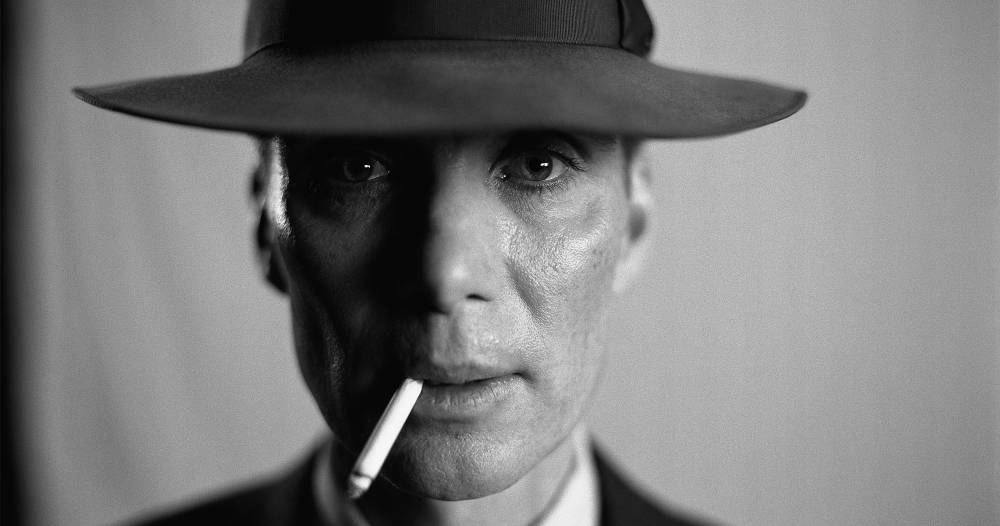[A still from the film Oppenheimer. Source: universalpictures.com]
The movie Oppenheimer directed by the celebrated Christopher Nolan released to much anticipation at cinemas in India yesterday. While there is no taking away from the genius of Nolan, it must be said that it took a Nolan to place the spotlight on the life and times of the scientist J. Robert Oppenheimer. His shadow looms over our contemporary worlds. Most of us are still to see the movie. But there are books, long form articles and films we have read about Oppenheimer we believe are absolutely compelling and you may want to read and watch before or after you watch this movie.
Let us know what you think about this shortlist and if there are others that must be added to it.
Books
We have four book recommendations; these books describe the life and work of key people that defined the Nuclear Age.
American Prometheus by Kai Bird and Martin Sherwin
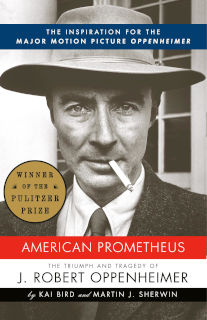
The biography of Robert Oppenheimer was published in 2005 to wide acclaim and went on to win every award that matters, which includes the Pulitzer. In fact, by the time the filmmaker Christopher Nolan was done with reading it, he had made up his mind that this is a book which he will base his next film on.
Another matter altogether that when he met the authors, they didn’t believe he had the intent or that the movie would ever get done. In fact, when they started out, they had collected so much material, they didn’t know how to cope with it. That the book got written at all had them surprised. After all, Martin Sherwin had started work on it in the 1980s and it was going nowhere. Then, he got Kai Bird to join him in 1999 and things started to fall into place.
Soon after Nolan signed up with both of them for the rights to make a movie out of their book, Sherwin contracted cancer. He died in October 2021.
Einstein: His Life and Universe by Walter Isaacson
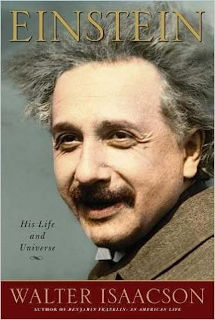
Einstein makes an appearance in Oppenheimer. Some accounts have it that their relationship was a deep one despite the generational gap between them. Einstein was the older one and many accounts suggest that over time, their professional acquaintance morphed into a close friendship. Then there are other accounts that suggest while their paths did cross and they got to be colleagues, they were never friends.
Be that as it may, the fact of the matter is, Einstein and Oppenheimer were on the same page when it came to nuclear weapons. Just how extraordinary a man Einstein was is captured by Walter Isaacson in his biography of the man. We believe this book must be on every book shelf because it places in perspective the life and time of one of the most influential thinkers of our times. Yes, there are parts of it that go into scientific territory that may sound arcane. But don’t let that put you off. The pay-offs are high and few people write biographies as well as Isaacson does.
The Last Man Who Knew Everything: The Life and Times of Enrico Fermi, Father of the Nuclear Age by David N. Schwartz
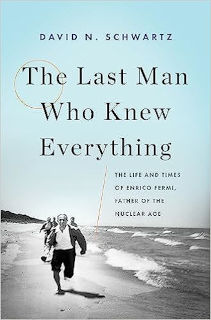
We had a tough time choosing between Richard Feynman and Enrico Fermi for this recommendation. Both were involved in the Manhattan Project and are featured in the movie. Both were Nobel laureates in physics. Both were incredibly smart. Both are well known. We chose Enrico Fermi because he is slightly less known than Feynman. And because the title of the book is cool. The book has a separate section on the Manhattan Project. Beyond his involvement in the project, there is a practical reason to reflect on Fermi.
Yes, we are talking about Fermi estimation, a method for making rough estimates of difficult-to-calculate quantities. In case you didn’t know about it already:
-
Break down the problem into smaller, more manageable subproblems.
-
Make educated guesses based on your knowledge and experience.
-
Use order-of-magnitude estimates (i.e., estimates that are accurate to within a factor of 10).
-
Be willing to make mistakes.
The last point is an essential element of curiosity that defined both Fermi and Feynman.
Let’s now change the lens.
Hiroshima by John Hersey
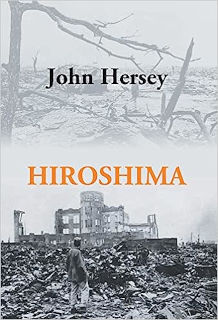
John Hersey's Hiroshima is a powerful piece of journalism that delves into the human experience and aftermath of the atomic bombing of Hiroshima, a direct consequence of the Manhattan Project, through stories of six survivors—all ordinary Japanese citizens. Published originally as a lengthy article in The New Yorker in 1946 (the magazine devoted the entire issue to this one piece), and later as a book, it became a landmark work of literature.
Movies
These two movies explore the conflict that came out of the world going nuclear.
Dr. Strangelove or: How I Learned to Stop Worrying and Love the Bomb
This is a satirical black comedy film released in 1964, directed by Stanley Kubrick. The movie is a brilliant critique of the Cold War era and the absurdities of nuclear deterrence during that time. (Available for rent on Prime Video).
Watch a trailer:
This is a thrilling and intense submarine warfare film released in 1995, directed by Tony Scott and starring Denzel Washington and Gene Hackman. The movie is set during a fictional conflict between Russia and the United States and centres around a nuclear submarine crew faced with a critical decision that could potentially lead to a global nuclear war. It’s said that the most powerful conflict is not the one between a good guy and a bad guy, but the one between two good guys representing two different world views, both of which might be right. This movie is an example of such a conflict. It’s also a movie about the complexity of decision-making under extreme pressure. (Available on Apple TV)
Watch a trailer:
